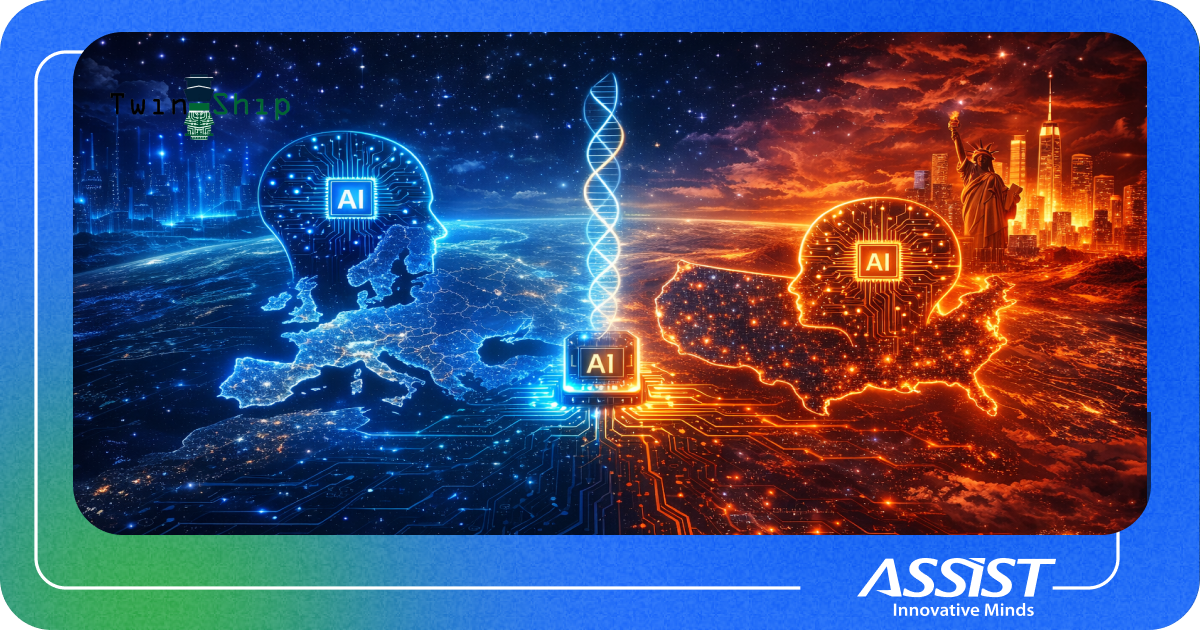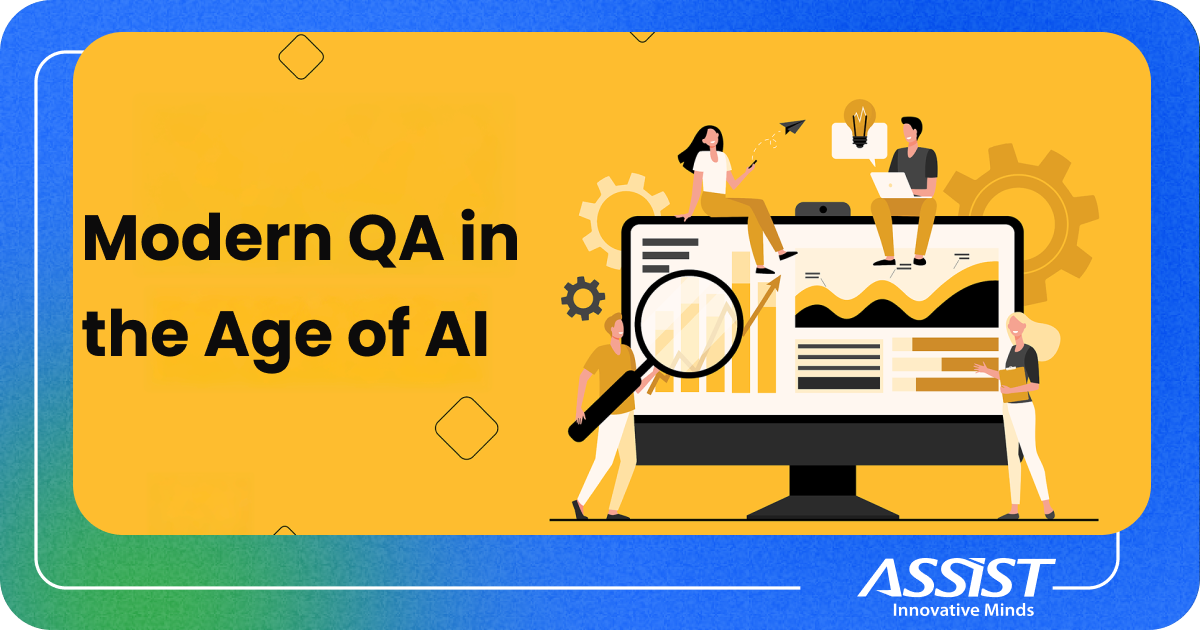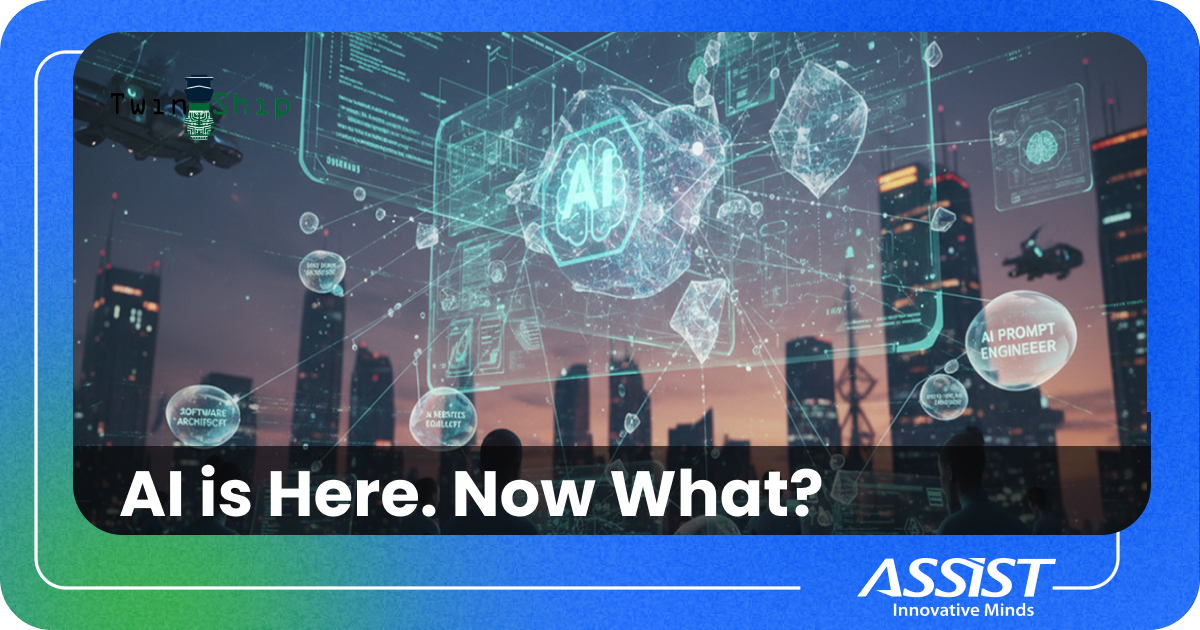New Critical Guidelines from OMB Regarding AI System
The U.S. Office of Management and Budget (OMB) recently issued critical guidelines for acquiring AI systems. While aimed at U.S. federal agencies, these recommendations hold universal relevance, even for European businesses aiming to implement AI responsibly. The memo emphasizes three core areas: risk management, fostering competition, and ensuring strong governance. Read why these guidelines matter.

The OMB memo emphasizes that managing AI risk is paramount for ensuring technology is developed ethically and securely. For European companies, this aligns with existing regulations like GDPR, where protecting personal data is crucial. AI systems must be designed to address issues like bias, privacy concerns, and cybersecurity threats.
As a software company, you must integrate these considerations into your development process. ASSIST Software focuses on robust data protection and ensures compliance with both U.S. and European standards. By safeguarding sensitive data, we create AI systems prioritizing user privacy and ethical considerations, preventing issues before they arise.
According to the European Union Agency for Cybersecurity (ENISA), AI-related cyberattacks are rising, making this a significant concern for businesses. Incorporating strong security protocols early in AI development is essential for minimizing these risks, a practice ASSIST takes seriously. With over 87% of global executives expecting an increase in AI-related cybersecurity threats (as per Accenture's AI report), adopting proactive risk management is essential.
Read more about data security and scalability:

In fostering a competitive AI marketplace, the OMB memo highlights the importance of interoperability, transparency, and avoiding vendor lock-in—principles that apply equally to European businesses. AI should not restrict companies to one vendor's ecosystem; instead, solutions should be scalable and adaptable, promoting innovation and long-term competitiveness.
We've been a strong advocate of these values. Our work on multiplatform applications ensures that businesses using AI remain agile, flexible, and not bound to a single platform. By designing systems that easily integrate with other technologies, they foster a truly competitive environment. This approach enables businesses to easily switch vendors or platforms, making it easier to adopt new innovations or scale up as needed.
Interoperability has also been highlighted as a key factor in AI's future by the OECD, with estimates suggesting that companies adopting open and flexible systems could increase their growth potential by 25-30%. ASSIST's dedication to flexibility helps clients innovate without being constrained by a rigid AI infrastructure, making them better prepared to navigate technological advancements. So, where are you heading with your digital transformation?
- Read more about AI development:

The OMB's memo also focuses on the need for robust governance structures in AI acquisition. This is crucial for ensuring that AI systems align with an organization's mission and ethical standards. Companies should integrate governance practices at every level, from project managers to C-suite executives, to guarantee that AI aligns with long-term business objectives.
We recommend incorporating these governance frameworks in collaboration with clients and stakeholders to ensure that AI projects remain on track and meet regulatory and ethical guidelines. Our work in international research projects, such as the Horizon Europe initiatives, highlights that this is an area where having expertise can give you an edge. These projects often involve multiple stakeholders who must adhere to strict governance rules, ensuring transparency and accountability in AI development.
Moreover, a PwC study found that companies with solid governance frameworks for AI are 50% more likely to achieve higher success rates in AI implementation. This statistic emphasizes the importance of having clear, structured oversight for AI, which ASSIST Software continuously practices to ensure that all AI projects align with business goals and ethical standards.
Read more about EU and governmental projects:
The U.S. government's AI acquisition memo offers valuable lessons for businesses globally, including those in Europe. Focusing on risk management, fostering competition, and establishing strong governance allows companies to ensure they are building AI systems that are both secure and scalable.
For more insights on our AI development projects, visit our blog and news section.



